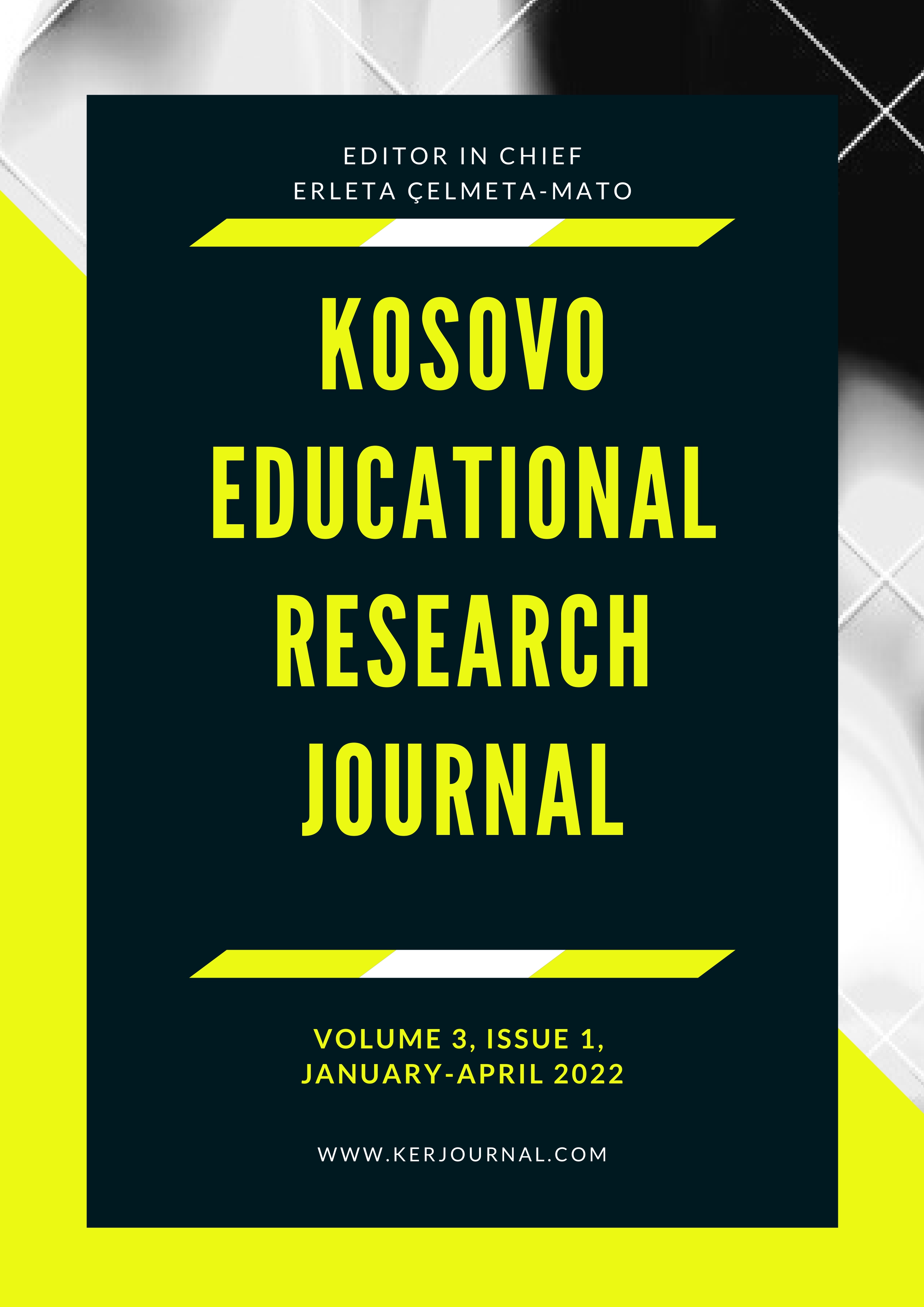Author :
Abstract
Keywords
Abstract
The COVID-19 pandemic, which has affected all the world, has also affected Kosovo in many ways. The pandemic had a negative impact on many other fields, especially health, economy, tourism, and education. While the pandemic process is spreading rapidly, education in Kosovo has transitioned to distance-online education. The positive and negative processes experienced by teachers, administrators, and parents in distance education have also affected education. In this case, the readiness of schools for distance education, the readiness of teachers and parents, and the readiness of the country in terms of technology were important factors. Therefore, the present study aimed to survey the views of teachers working in Turkish education in Kosovo about distance education. Accordingly, the experience of the COVID-19 pandemic and its teachers has been examined in depth.
The research was carried out adopting a quantitative research method. A total of 160 teachers, including preschool teachers, classroom teachers, and other branch teachers, who work in Turkish education in Kosovo, participated in the research. The data collection tool in the study consisted of two sub-dimensions, "Technical Support Competence in the Distance Education Process" and the Benefits of Distance Education. In the study, Cronbach Alpha calculation was carried out for the reliability calculation of the survey. Alpha value was calculated as 0.851.
The Jamovi software was used in the data analysis of the study. Frequency and percentage calculations were carried out. To determine whether there is a differentiation, firstly, the Kolmogorov-Smirnov test was performed to determine whether it has a normal distribution. The data were calculated as Kolmogorov-Smirnov 0.0852 (p=0.196) in the sub-dimension "Technical Support Competence in the Distance Education Process" and Kolmogorov-Smirnov 0.0649 (p=0.511) in the Benefits of Distance Education sub-dimension. Based on these results, independent sample t-tests and ANOVA tests were used in the analyses.
As a result, it was emphasized that the COVID-19 pandemic created an economic and educational panic in teachers. In this process, Internet connection, students' motivation, and technical competency of application emerged as the most important factors. Suggestions were made to hold training seminars so that teachers' could better benefit from today's technology.
Keywords
- Alpago, H., & Alpago, D. O. (2020). Korona virüs ve sosyoekonomik sonuçlar. IBAD Sosyal
- Alpago, H., & Alpago, D. O. (2020). Korona virüs ve sosyoekonomik sonuçlar. IBAD Sosyal Bilimler Dergisi, (8), 99-114.
- Bakioğlu, B., & Çevik, M. (2020). COVID-19 pandemisi sürecinde fen bilimleri öğretmenlerinin uzaktan eğitime ilişkin görüşleri. Electronic Turkish Studies, 15(4).
- Bozkurt, A. (2020). Koronavirüs (Covid-19) pandemi süreci ve pandemi sonrası dünyada eğitimeyönelik değerlendirmeler: Yeni normal ve yeni eğitim paradigması. Açıköğretim Uygulamaları ve Araştırmaları Dergisi, 6(3), 112-142.
- Duraku, Z. H., & Hoxha, L. (2020). The impact of COVID-19 on education and on the well-beingof teachers, parents, and students: Challenges related to remote (online) learning and opportunitiesfor advancing the quality of education. Retrieved online from https://www. researchgate. net/publication/341297812.
- Ertuğ, C. A. N. (2020). Coronavirüs (Covid-19) pandemisi ve pedagojik yansımaları: Türkiye’deaçık ve uzaktan eğitim uygulamaları. Açıköğretim Uygulamaları ve Araştırmaları Dergisi, 6(2), 11-53.
- Gupta, A., & Goplani, M. (2020). Impact of COVID-19 on educational institution in India. Purakala Journal U (CARE Listed), 31(21).
- Kelmendi, L., & Lajqi, M. (2021). Teaching During COVID-19: A Case Study from Kosovo. Available at SSRN 3857698.
- MASHT (2020). REGULATION NO 135 2020 FOR THE PROTECTION AND HEALTHSAFETY IN SCHOOLS DURING PRACTICE IN SCHOOL AND WORK PLACE , https://masht.rks-gov.net/uploads/2020/12/udhzimi-administrativ-me-nr-135-2020-per-
- mbrojtjen-dhe-rujtjen-e-shendetit-te-nxensve-gjate-mesimit-praktike-ne-shkolle-dhe-ne-vendin- e-punes.pdf/ Retrieved on 07 April 2021 from the web address.
- Mulenga, E. M., & Marbán, J. M. (2020). Is COVID-19 the gateway for digital learning in mathematics education?. Contemporary Educational Technology, 12(2), ep269.
- Perienen, A. (2020). Frameworks for ICT integration in mathematics education-A teacher’sperspective. Eurasia Journal of Mathematics, Science and Technology Education, 16(6), em1845.Skeja, A., & Dushi, N. S. (2020). Evaluation of Students’ Feedbacks on Online Education during COVID-19.
- WHO.(2020a). WHO Director-General's opening remarks at the media briefing on COVID-19 -11 March 2020, https://www.who.int/dg/speeches/detail/who-director-general-sopening-remarks-at-the-media-briefing-on-covid-19---11-march-2020, Retrieved on 15 august 2020 from the web address.
- WHO.(2020b). Coronavirus disease (COVID-19) outbreak situation.https://www.who.int/emergencies/diseases/novel-coronavirus-2019, Retrieved on 15 August 2020 from the web address.
